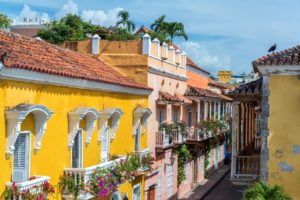Costa Rica
Penalty enforcement for overstay
Effective April 20, 2018, the General Directorate of Immigration will start to enforce an existing fine of US$100 for overstays. Alternatively, a ban from entering Costa Rica may be implemented for up to three times the length of overstay.
The penalties are retroactively applied to any overstay since March 1, 2010 and may affect the following:
- Tourists, transit visa holders and ship crew, staff and passengers with expired visas.
- Short stay, temporary residence and special category visa holders with expired DIMEX ID cards.
- Those who have been notified of a rejected immigration status and have not submitted an appeal.
Key considerations
Visa holders should ensure they leave the country, extend their visa, or request a change of immigration status before their visa expires. Short stay, temporary residence and special category visa holders who intend to stay in Costa Rica should apply to extend their DIMEX well before it expires.
This summary was prepared using information obtained from Peregrine Immigration Management.
Disclaimer: The above information is provided for general information purposes only and should not be construed as legal advice. If you have any further inquiries regarding the applicability of this information, please contact Roberta Carnaccini, Global Immigration Operations Director.
Indonesia
Changes to regulations for hiring foreign workers

The Government of Indonesia has announced planned changes to the regulations of hiring foreign workers. The new regulations are expected to come into effect from June 29, 2018.
Details of the main changes are as follows:
Expatriate Placement Plan (RPTKA) and Work Permit (IMTA)
- In certain sectors, a foreign worker will be able to work with the same job title for more than one employer. The sectors and job titles to which this will apply have not yet been established.
- The processing time for the RPTKA and the IMTA will reduce and each will take no more than two working days. The current processing time for each process is one to three weeks.
- The RPTKA will no longer be applicable to shareholders working as Directors or Commissioners in the same company in which they hold shares, or Diplomatic and Consular officers. This will also be extended to foreign workers whose jobs are considered vital to the Indonesian Government. It has not been established which jobs will qualify for this exemption.
- The RPTKA and payment of the Skill Development Fund (DPKK) will no longer be required for Government Agencies, social or religious institutions and educational institutions. The relevant roles have not been identified.
- For urgent and emergency work up to a maximum of one month, the employer will be able to apply for the RPTKA. This should be done within two working days after the foreign national has started working in Indonesia. The RPTKA will be issued within one day of submission of the application.
Limited Stay Visa (VITAS) and Limited Stay Permit (ITAS)
- Consulates will be required to issue VITAS within two working days of receipt of a complete application. This process currently takes between three and ten working days.
- Consular applications for an ITAS will be possible. This will be relevant for urgent and emergency cases only.
- ITAS will initially be issued for up to two years and will continue to be extendable. The current period is one year and a longer maximum validity will be considered on a case-by-case basis.
- Employers will not be required to register foreign national employees for more than six months with the Manpower Social Security (BPJS Ketenagakerjaan). This is as long as the foreign worker holds similar insurance with a private insurance company registered in Indonesia and are working in Indonesia.
- Employers will be required to issue a certificate of training or competence to the Indonesian counterpart worker as proof of knowledge transfer.
Crown will continue to provide updates as further information becomes available.
This summary was prepared using information obtained from Indonesia Investments.
Disclaimer: The above information is provided for general information purposes only and should not be construed as legal advice. If you have any further inquiries regarding the applicability of this information, please contact Debra Beynon, Regional Immigration Manager APAC.



